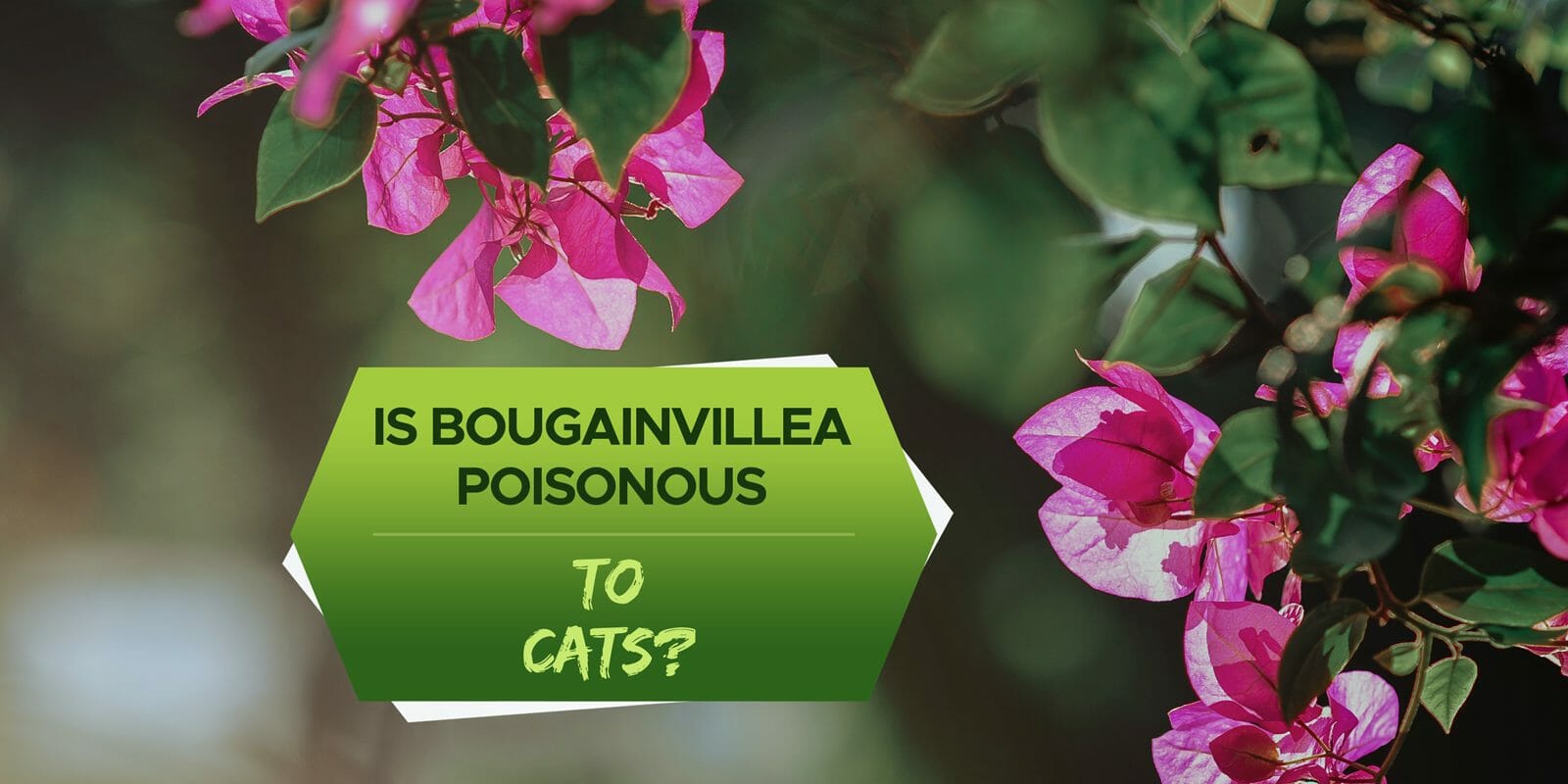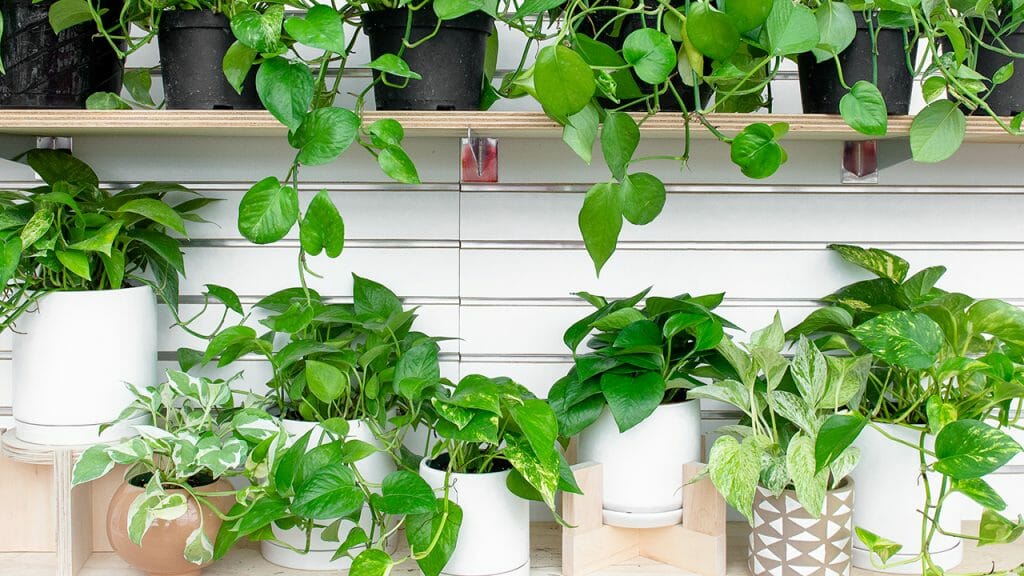
If you’re a cat owner and considering adding some colorful bougainvillea plants to your home or garden, it’s essential to know whether or not these plants are toxic to your feline friends.
So, is bougainvillea poisonous to cats? While bougainvilleas are not highly toxic to cats, they contain certain compounds that can cause mild to moderate poisoning symptoms if ingested.
Come with me, and we’ll take a closer look at bougainvillea poisoning in cats, including the signs to watch for and what you can do if you suspect your cat has ingested one of these plants; you’ll be an expert in no time!
What is Bougainvillea?
Seeing as you’re here, I assume you know what Bougainvillea is, but in case you’re not entirely sure, read on.
Bougainvillea is a flowering plant native to South America that is popularly grown as a decorative shrub or vine in warm climates around the world.
It’s known for its bright, showy flowers, which come in a range of colors, including purple, pink, red, orange, and yellow.
Bougainvillea plants are relatively easy to care for and thrive in sunny, well-draining locations.
They are often used in landscaping, as privacy hedges, or in pots and containers for patio or balcony gardens.
Is Bougainvillea Poisonous to Cats?
Bougainvillea plants contain a number of toxic compounds, including saponins and flavonoids, which can be harmful if ingested by cats.
Saponins are a type of plant-based detergent that can cause vomiting and diarrhea, while flavonoids can lead to allergic reactions and skin irritation.
In addition, bougainvillea plants contain oxalates, which are needle-like crystals that can cause irritation and swelling of the mouth, tongue, and throat if ingested.
While bougainvillea poisoning is not typically fatal in cats, it can cause mild to moderate symptoms that may require treatment.
If your cat does ingest any part of a bougainvillea plant, you may notice signs such as vomiting, diarrhea, drooling, difficulty swallowing, and swelling of the face or mouth.
In severe cases, bougainvillea poisoning can also cause difficulty breathing, tremors, and loss of appetite.

Preventing Bougainvillea Poisoning in Cats
The best way to prevent bougainvillea poisoning in cats is to keep these plants out of reach; easier said than done, I know!
If you have bougainvilleas in your garden, make sure to fence them off or keep your cat away from the area.
To keep your bougainvillea plants safe from four-legged intruders, position them in an area that is out of reach for cats, like on a high shelf or in a room not open to pets.
It’s also a good idea to monitor your cat’s behavior around bougainvillea plants, as cats are curious animals that may be attracted to bright flowers or leaves.
If you notice your cat chewing on a bougainvillea plant, intervene immediately and remove the plant from your cat’s access.
DON’T MISS: Is ficus gensing toxic to cats?
Treatment for Bougainvillea Poisoning in Cats
But let’s say the worst has happened, and you suspect your cat has ingested a bougainvillea plant. What do you do? Don’t panic (easier said than done, we know), and seek veterinary care as soon as possible.
Treatment for bougainvillea poisoning in cats may include medications to control vomiting and diarrhea and supportive care such as IV fluids to prevent dehydration.
In severe cases, your veterinarian may recommend hospitalization to monitor your cat’s condition and provide additional treatment as needed.
If your cat is experiencing difficulty swallowing or breathing, your veterinarian may need to perform procedures such as flushing the mouth or administering oxygen to alleviate these symptoms.
In some extreme cases, surgery may be necessary to remove any plant material stuck in your cat’s mouth or throat – but that is very rare!
It’s also important to remember that bougainvillea poisoning can cause allergic reactions in some cats, so your veterinarian may recommend antihistamines or other medications to manage these symptoms.
While bougainvillea poisoning is not usually life-threatening in cats, it’s important to seek prompt treatment to prevent any potential complications. If left untreated, bougainvillea poisoning can lead to more severe issues such as dehydration, malnutrition, or organ damage.

Preventing Future Poisoning Incidents
Once your feline has made a full recovery from bougainvillea poison, it is important to take measures to avoid similar episodes in the future.
In addition to keeping bougainvillea plants out of reach, you can also consider purchasing pet-safe plants for your home or garden.
Some good options for cat owners include spider plants, bamboo, and herbs such as basil and mint.
I’d recommend taking some time to familiarize the common plants and substances that are toxic to cats and keep these out of reach.
Familiar household substances such as cleaning supplies, medications, and specific types of food can be dangerous if ingested by cats.
If any worries arise in regards to the safety of a certain substance or vegetation, always turn to your veterinarian or pet poison control center for counsel and guidance.
DON’T MISS: Talking of plants that can be toxic to cats, find out here if wandering jew is poisonous to cats.
Frequently Asked Questions:
Can cats climb on Bougainvillea?
Yes, it is possible for cats to climb on bougainvillea plants. However, these plants have sharp thorns and contain oxalates that can cause irritation and swelling of the mouth and throat if ingested, so it’s important to prevent your cat from climbing on them.
Can you keep Bougainvillea in the house?
Yes, you can keep bougainvillea plants in the house. Remember, it’s important to keep in mind that bougainvillea plants thrive in sunny, well-draining locations and require a lot of light to produce flowers, so you’ll need to place them in a sunny spot near a window or use grow lights to provide enough light.
Conclusion
While they are gorgeous, Bougainvillea plants can be poisonous to cats if ingested.
While the symptoms of bougainvillea poisoning are typically mild to moderate, it’s important to seek prompt veterinary care if you suspect your cat has ingested one of these plants.
To prevent bougainvillea poisoning in your cat, make sure to keep it well out of reach and consider purchasing pet-safe plants instead.
I hope all that information will help to keep your furry friend safe and healthy!


